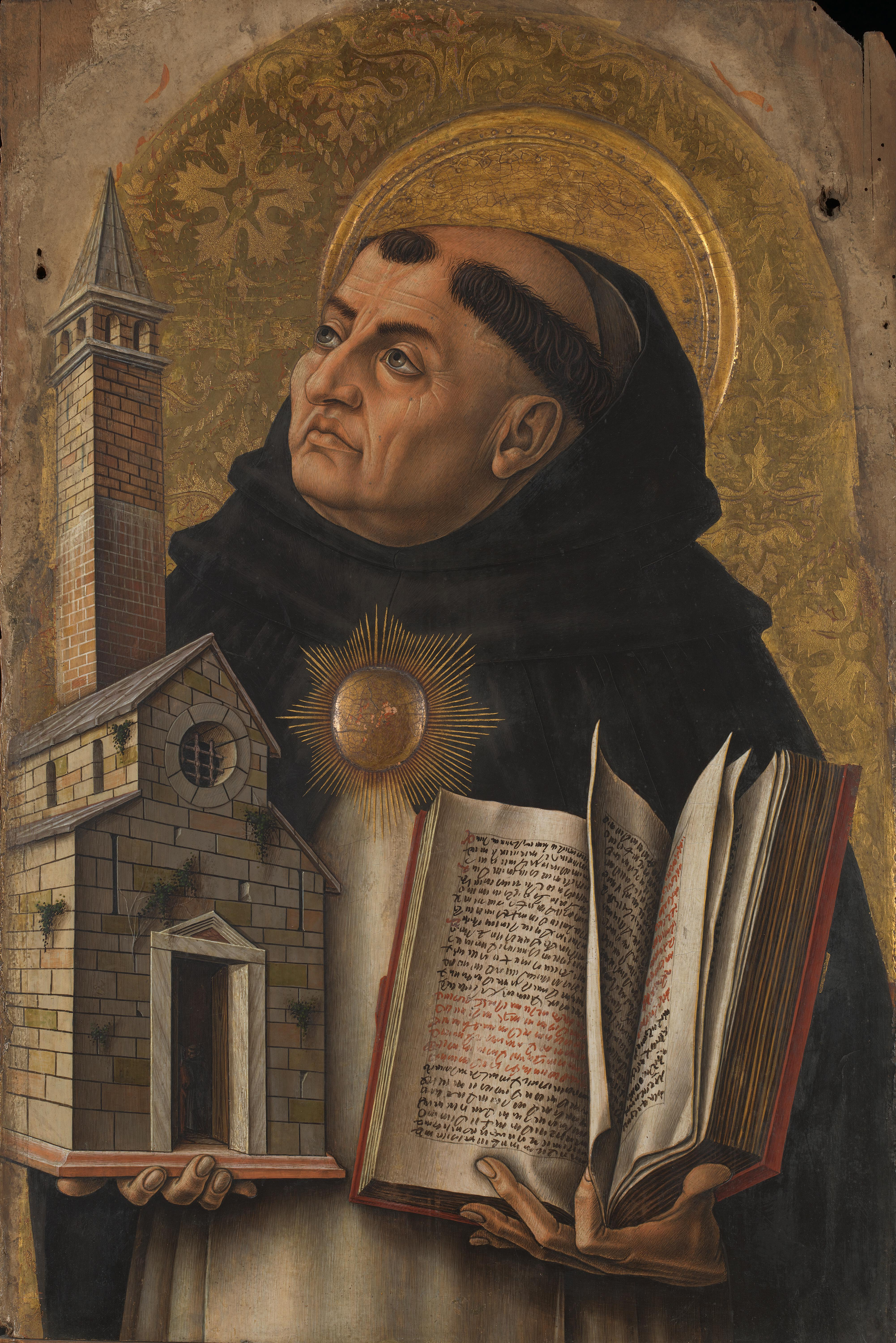Tomás de Aquino Frases famosas
Atribuídas
“Temo o homem de um só livro”
Hominem unius libri timeo. / Timeo hominem unius libri.
esta frase é citada por Paulin Limayrac, na obra "Revue des Deux Mondes", tome 7, 1844; "Revue littéraire" como de Cícero.
Atribuídas
Atribuídas
Fonte: Suma Teológia: Parte II: Questão 11 - Artigo 3 http://www.newadvent.org/summa/3011.htm#article3
Tomás de Aquino frases e citações
Tomás de Aquino: Frases em inglês
“Nothing is in the intellect that was not first in the senses.”
q. 2, art. 3, arg. 19
This is known as the Peripatetic axiom.
De veritate (c. 1256–1259)
“Grace does not destroy nature but perfects it.”
I, q. 1, art. 8, ad 2
Summa Theologica (1265–1274)
“Now, as the Word of God is the Son of God, so the love of God is the Holy Spirit.”
Sermon on the Apostles' Creed (c. 1273), Art. 8
“No evil can be excused because it is done with a good intention.”
Original: (la) Nullum malum bona intentione factum excusatur.
Variante: Variant translation: An evil action cannot be justified by reference to a good intention.
Fonte: On the Ten Commandments (c. 1273)
Original: (la) Lex naturae […] nihil aliud est nisi lumen intellectis insitum nobis a Deo, per quod cognoscimus quid agendum et quid vitandum. Hoc lumen et hanc legem dedit Deus homini in creatione.
Fonte: On the Ten Commandments (c. 1273) Art. 1
Misattributed
Fonte: This quote, frequently attributed to Aquinas, is actually a paraphrase of a passage (itself an elaborate paraphrase of Augustine) by Ptolemy of Lucca in his continuation of an unfinished work by Aquinas. The passage from Ptolemy reads: "Thus, Augustine says that a whore acts in the world as the bilge in a ship or the sewer in a palace: 'Remove the sewer, and you will fill the palace with a stench.' Similarly, concerning the bilge, he says: 'Take away whores from the world, and you will fill it with sodomy.'" (Ptolemy of Lucca and Thomas Aquinas, On the Government of Rulers, trans. James M. Blythe. Philadelphia: University of Pennsylvania Press, 1997, 4. 14. 6). What Augustine actually wrote (in De ordine, 2. 4. 12) was simply: "Remove prostitutes from human affairs and you will unsettle everything on account of lusts." Only Book 1 and the first four chapters of Book 2 of On the Government of Rulers (De Regimine Principum) are by Aquinas. The rest of the work was written by Ptolemy. (It even mentions the coronation of Albert I of Hapsburg, an event that occurred in 1298, twenty-four years after Aquinas's death.) The quote comes from Book 4, which was definitely not written by Aquinas.
Fonte: De potentia (c. 1265–1266) q. 7, art. 9, ad 8
Fonte: De potentia (c. 1265–1266) q. 7, art. 5, ad 14
“Perfect happiness can consist in nothing else than the vision of the Divine Essence.”
Fonte: Summa Theologica (1265–1274), I–II, q. 3, art. 8 co
Fonte: On the Governance of the Jews (c. 1263–1265) art. 4
“Truth is the ultimate end of the whole universe.”
Fonte: Summa contra Gentiles (1259–1265) I, 1, 2
Fonte: Commentary on the Metaphysics (c. 1270–1272), 1, 3; quoted in Josef Pieper, Leisure, the Basis of Culture (New York, 1952), p. 88
